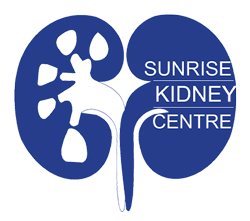Pediatric Nephrologist in Vijayawada
Pediatric nephrology is a specialized branch of medicine focused on diagnosing and treating kidney disorders in children, ranging from neonates to adolescents. This field addresses a variety of conditions, including congenital anomalies, glomerulonephritis, nephrotic syndrome, urinary tract infections, and chronic kidney disease. Pediatric Nephrologist in Vijayawada perform comprehensive evaluations, including laboratory tests, imaging studies, and sometimes kidney biopsies, to assess kidney function and determine the underlying cause of renal issues. The care of pediatric patients requires an understanding of their unique physiological and developmental needs, as well as family-centered communication and support. Pediatric nephrology not only focuses on managing the immediate health concerns but also emphasizes the long-term well-being and quality of life for young patients, considering their growth and development. This specialty plays a critical role in addressing the complexities of kidney-related health issues in children, aiming to improve outcomes and foster healthier futures by Children's kidney specialist in Vijayawada .

Different disorders seen under pediatric nephrology:
- Congenital Anomalies of the Kidneys and Urinary Tract (CAKUT): Structural defects present at birth, affecting kidney development and function.
- Nephrotic Syndrome: A condition characterized by proteinuria, hypoalbuminemia, edema, and hyperlipidemia; it's often caused by minimal change disease in children.
- Acute Kidney Injury (AKI): A sudden loss of kidney function, which can be due to dehydration, infections, or obstruction; requires prompt attention to avoid progression.
- Chronic Kidney Disease (CKD): Progressive loss of kidney function over time, often resulting from congenital issues, glomerulonephritis, or systemic diseases.
- Glomerulonephritis: Inflammation of the kidney's filtering units, often secondary to infections, leading to hematuria and proteinuria.
- Hypertension: Elevated blood pressure in children can be secondary to kidney disorders or primary hypertension, requiring careful monitoring and management.
- Fluid and Electrolyte Disturbances: Imbalances in the body's fluids and electrolytes can lead to various complications, necessitating specialized treatment.
- Renal Tubular Disorders: These include conditions like Fanconi syndrome, affecting tubular function leading to metabolic abnormalities.
What are the different symptoms that can be seen for pediatric disorders patients:
Pediatric nephrology disorders encompass a range of conditions affecting the kidneys, leading to various symptoms that can vary widely based on the underlying issue. Common symptoms noticed by Nephrologist in Vijayawada include swelling or edema, primarily in the face, legs, and abdomen, due to fluid retention. Children may also experience changes in urine output, such as decreased urination or the presence of blood (hematuria) or protein (proteinuria) in the urine, which can indicate kidney dysfunction. Frequent urinary tract infections may occur, leading to discomfort or burning during urination. Additionally, hypertension or high blood pressure can arise as the kidneys fail to regulate fluid balance properly. Children may exhibit symptoms of fatigue and malaise due to anemia resulting from chronic kidney disease, affecting their overall energy levels. Growth delays may also become evident as kidney disorders can disrupt nutrient absorption. In more severe cases, systemic issues might emerge, including digestive problems, poor appetite, or skin rashes. Early recognition and intervention by Dr. M.V. Sai Krishna are crucial in minimizing long-term complications associated with pediatric kidney disorders.
Can pediatric disorders be prevented?
Preventing pediatric nephrology disorders is a complex challenge due to the multifactorial nature of many kidney-related conditions. While not all disorders can be prevented, several strategies can significantly reduce risk factors associated with kidney disease in children. Promoting a healthy lifestyle, including proper nutrition, regular physical activity, and maintaining a healthy weight, can help prevent conditions like obesity and hypertension, which are known risk factors for kidney disease. Early detection and management of diabetes and urinary tract infections are also crucial, as these can lead to chronic kidney problems if left untreated. Additionally, education about the importance of hydration and avoiding nephrotoxic substances, such as certain medications and excessive salt, plays a vital role in prevention at Sunrise Kidney Centre. Family history and genetic predispositions cannot be changed; however, regular pediatric check-ups can facilitate early diagnosis and intervention for children at risk. Overall, while complete prevention may not be feasible for all pediatric nephrology disorders, implementing preventive health measures and promoting awareness can significantly enhance kidney health in children, thereby reducing the prevalence and adverse outcomes of these conditions.
Understanding some frequently encountered queries of pediatric nephrology
What are some risk factors for developing kidney disorders in children?
Risk factors for developing kidney disorders in children include:
- Family history of kidney disease
- Genetic disorders such as polycystic kidney disease (PKD)
- Congenital anomalies of the kidneys or urinary tract
- Premature birth or low birth weight
- Certain medications or infections
What are some treatments for kidney disorders in children?
Treatments for kidney disorders in children depend on the underlying cause and severity of the disorder, but may include:
- Medications to manage symptoms and slow disease progression
- Dietary changes to reduce protein and salt intake
- Fluid management to prevent dehydration
- Dialysis or kidney transplantation in severe cases
Can kids with kidney disorders still participate in sports and activities?
Yes, kids with kidney disorders can still participate in sports and activities with proper guidance and precautions from their healthcare provider.
What is hemodialysis, and how is it used in pediatric nephrology?
Hemodialysis is a type of dialysis that uses a machine to filter waste products from the blood. It is typically used in children who have end-stage renal disease (ESRD) and require long-term dialysis.
What is peritoneal dialysis, and how is it used in pediatric nephrology?
Peritoneal dialysis is a type of dialysis that uses a catheter to insert a fluid into the abdominal cavity, which absorbs waste products from the blood. It is typically used in children who have ESRD and require long-term dialysis.
Can kids with kidney disorders receive organ transplants?
Yes, kids with kidney disorders can receive organ transplants if they have end-stage renal disease. Pediatric nephrologists work closely with transplant teams to determine whether transplantation is appropriate for each child.
How do pediatric nephrologists manage proteinuria (excess protein in the urine) in children?
Pediatric nephrologists use a variety of methods to manage proteinuria in children, including:
- Medications to reduce proteinuria
- Dietary changes to reduce protein intake
- Fluid management to prevent dehydration
How do pediatric nephrologists work with families and caregivers to manage childhood kidney disorders?
Pediatric nephrologists work closely with families and caregivers to develop personalized care plans that address the unique needs of each child. This includes educating families about the child's condition, providing support and guidance on managing symptoms and medications, and helping families navigate the healthcare system.

